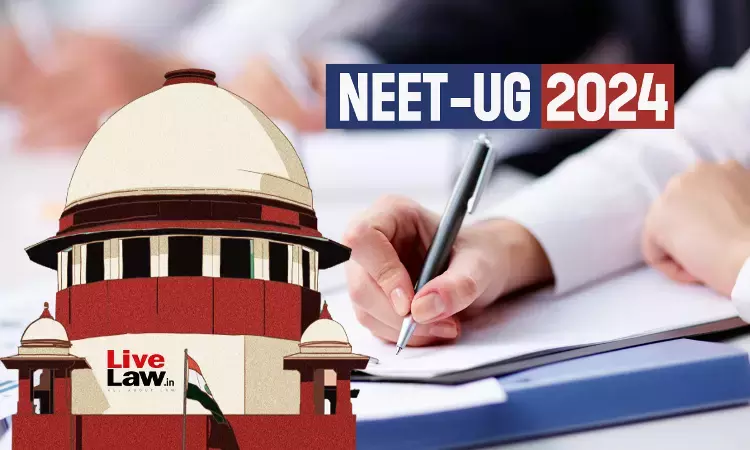NEET-UG 2024 | Exam Cancellation Only When Malpractice Is Systemic & Separation Of Untainted Candidates Is Impossible: Supreme Court
Debby Jain
2 Aug 2024 5:45 PM IST

Next Story
2 Aug 2024 5:45 PM IST
While refusing to cancel the NEET-UG exam held on May 5 this year on account of paper leak and malpractices, the Supreme Court has observed that an exam may be cancelled only when its sanctity is found to have been compromised at a systemic level and it is impossible to separate the tainted candidates from the untainted ones."...the cancellation of an examination, either for the purposes...
